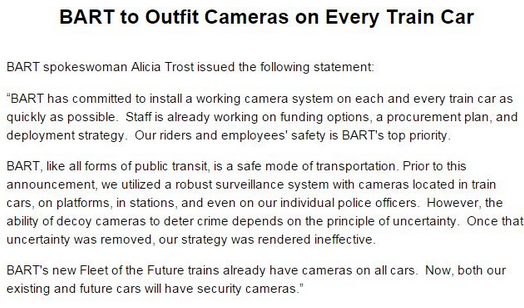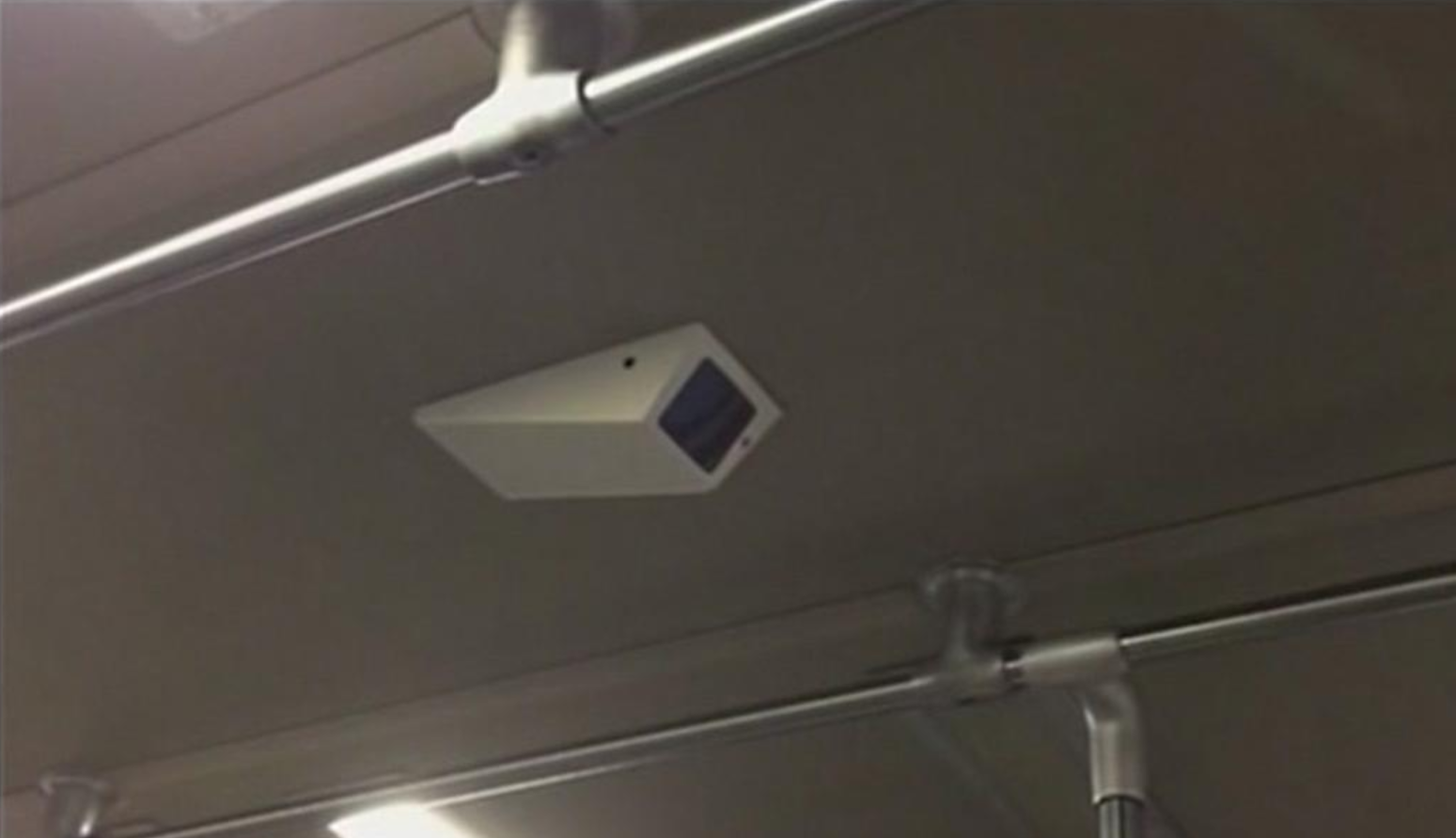SAN FRANCISCO—Following the January 9 shooting of 19-year-old Carlos Misael Funez-Romero on a BART train in the East Bay, BART authorities reported that the majority of the security cameras on trains are decoys. On Wednesday, January 20, transit officials stated they will be phasing out decoys mounted to ceilings to replace them with working surveillance cameras.
BART spokeswoman Alicia Trost stated in an announcement, the transit authority has already begun replacing cameras and will ensure every camera is fully functional on each train. According to an article released by the San Francisco Chronicle, it was discovered that BART was using fake cameras when news surfaced that there would be no video footage provided for the West Oakland station shooting of Romero.
Police are currently using photos of the alleged suspect based on the time he entered the West Oakland station. The case remains still unsolved, and the motive and relationship between the suspect and the victim remain unknown. The suspect has been described to be a thin and tall back male who was wearing a hooded dark green jacket, backpack, jeans, and beige boots at the time of the shooting.
According to Trost, the transit authority has mentioned that while this transition will not be instant, they want transit users to know that changes are underway. BART officials have emphasized safety as being the priority, and are currently in the process of considering various types of technology for cameras, including the price of each replacement per train and car.
According to the SF Chronicle, each car has approximately three to four cameras on each train car. BART officials stated the transportation agency will not only be replacing cameras, but also an entire fleet of trains expected between 2017 and 2021. The new fleet of cars will be well-equipped with updated surveillance technology that streams footage to a station for central monitoring.







